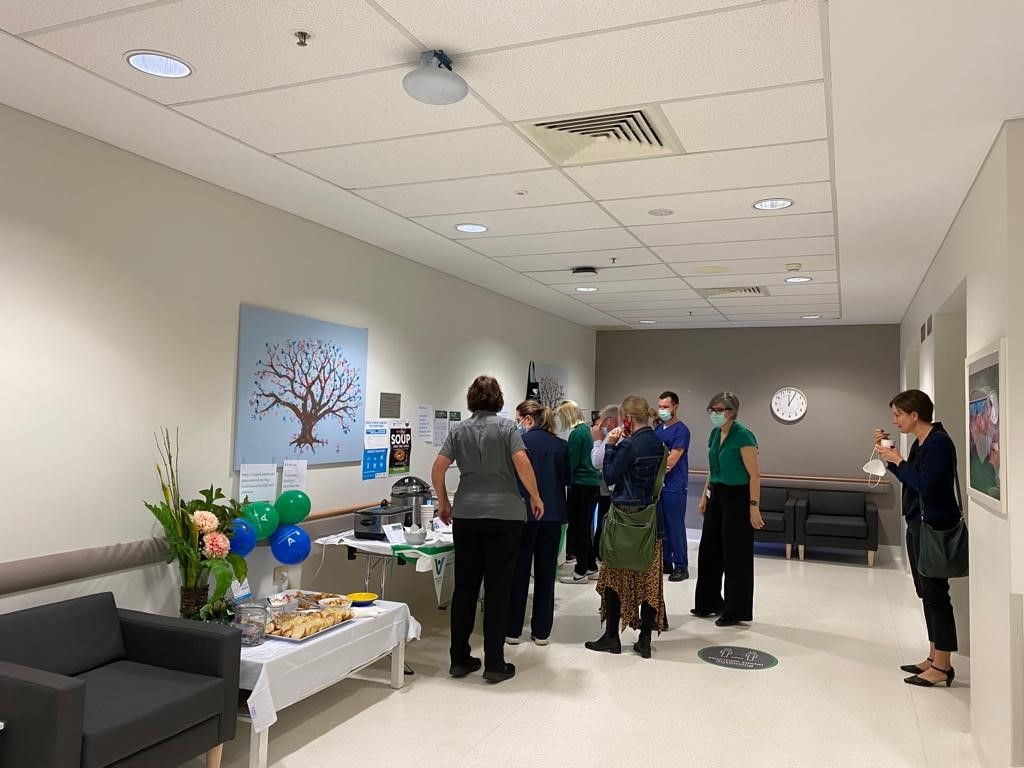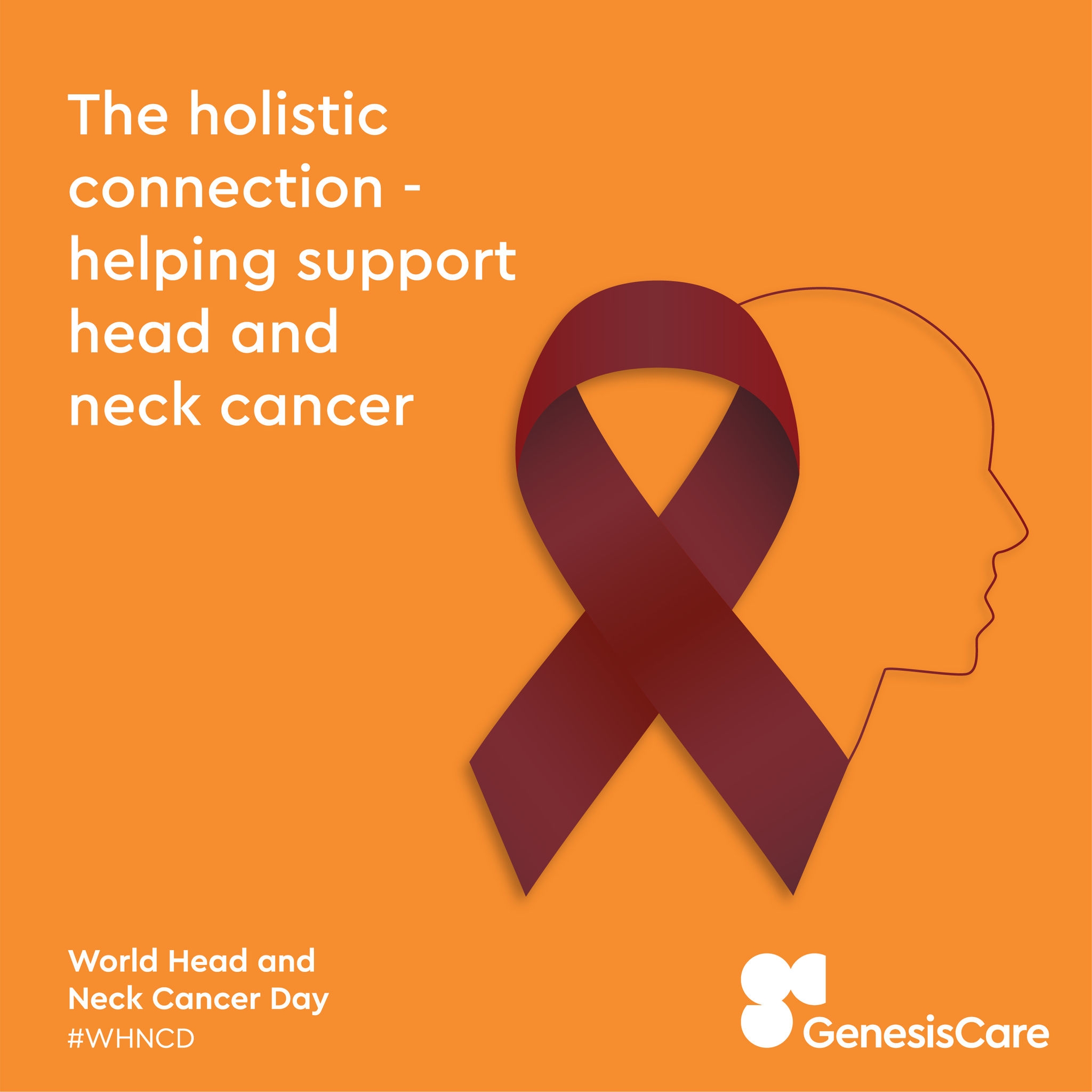The holistic connection – integrative care in head and neck cancer
Cases of head and neck cancer (HNC) are increasing worldwide, largely due to high rates of tobacco use and infections with the human papillomavirus.1 Treatment regimens for HNC – which may include surgery, radiation therapy, chemotherapy, or a combination of all three – can often be challenging for patients and can be associated with a range of unique side effects that negatively impact patients’ swallowing, speaking, and overall quality of life.2,3
Across the globe, over 875,000 new cases of HNC were diagnosed in 2020*4 – meaning that there may be many thousands of patients living with side effects related to their HNC treatment. To help support themselves through their cancer journey, patients with HNC may turn to complementary or alternative therapies such as herbal medicines, dietary supplements, acupuncture, and meditation or visualisation.3,5
Integrative cancer care, or integrative oncology, describes the integration of conventional and complementary methods of cancer treatment and prevention. With the aim to optimise health, quality of life, and clinical outcomes before, during, and after treatment, integrative oncology emphasises:3,5
- A patient-centred, whole-person approach to cancer care
- The innate ability of the body to heal itself and the importance of maintaining a healthy lifestyle
- The use of evidence-based mind and body practices, natural interventions, and lifestyle modifications when possible
Difficulty swallowing, or dysphagia, is one of the most common side effects of HNC treatment, affecting around 50% to 60% of patients who undergo radiation therapy for HNC.‡3 In addition to dysphagia, other treatment-related side effects that affect eating and quality of life include loss of taste, dry mouth (xerostomia), mouth sores (oral mucositis), muscle scarring (fibrosis), reduced jaw opening (trismus), and dental issues.2,3,7
Exercise is also considered an important component of integrative oncology care for patients with HNC.2 Incorporating an exercise program that includes aerobic and active resistance exercises has been shown to help improve cancer-related fatigue, functional capacity, and quality of life for those patients with HNC who undergo chemo-radiation treatment.8
Dr Melanie Jackson, Head of Department at GenesisCare Wembley, says
The multidisciplinary oncology team plays an integral role in the management of patients with head and neck cancers. Their involvement aims to ensure optimal outcome in this group of patients undergoing complex treatment and side effects. Removing the barriers to activate the body’s innate healing response – activating mechanisms that we have – to return to optimal health and homeostasis.
Many of our GenesisCare centres celebrate World Head and Neck Cancer Day each year.

Leading Head and Neck Cancer Prof. June Corry at St Vincent’s Hospital, Melbourne.

GenesisCare, Macquarie University Hospital celebrating World Head and Neck Day.
Footnotes
*Based on GLOBOCAN estimates of the incidence of HNC (comprising cancer of the lip, oral cavity, larynx, nasopharynx, oropharynx, and hypopharynx) across 185 countries in 2020; Sung H, et al. CA Cancer J Clin. 2021.4
†Nguyen CT, et al. Laryngoscope Investig Otolaryngol. 2018; Matovina C, et al. Otolaryngol Head Neck Surg 2017.3,6
‡Nguyen CT, et al. Laryngoscope Investig Otolaryngol. 2018.3
Disclaimer
Any medical procedure or treatment involving the use of radiation carries risks, including skin irritation and associated pain. Before proceeding with treatment, you should discuss the risks and benefits of the treatment with an appropriately qualified health practitioner. Individual treatment outcomes and experiences will vary. This information does not represent the outcome in your particular situation.
- Gormley M, et al. Br Dent J. 2022;233(9):780-786.
- Cancer Council. Understanding head and neck cancers. September 2021. Available: https://www.cancer.org.au/cancer-information/types-of-cancer/head-and-neck-cancers [accessed November 2023].
- Nguyen CT, et al. Laryngoscope Investig Otolaryngol. 2018;3(5):364-371.
- Sung H, et al. CA Cancer J Clin. 2021;71(3):209-249.
- Witt CM, et al. J Natl Cancer Inst Monogr. 2017;2017(52):10.1093/jncimonographs/lgx012.
- Matovina C, et al. Otolaryngol Head Neck Surg. 2017;156(2):228-237
- Sroussi HY, et al. Oral Maxillofac Surg Clin North Am. 2018;30(4):445-458.
- Samuel SR, et al. Support Care Cancer. 2019;27(10):3913-3920.




